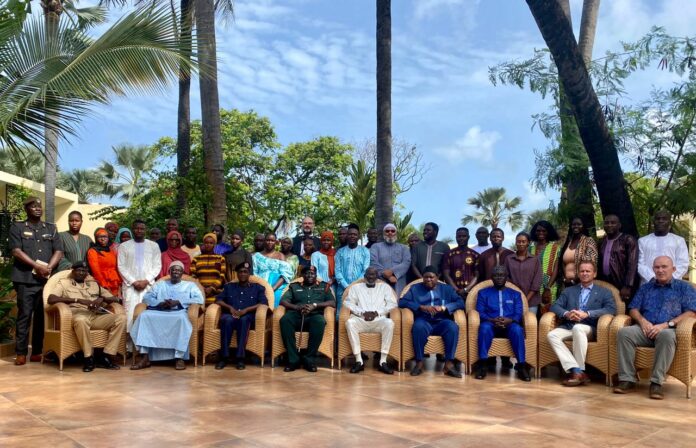By: Alagie Cherno Suwareh
The Office of National Security (ONS), with the support of the Center for Research and Policy Development (CRPD), organized a successful roundtable discussion with Civil Society Organizations (CSOs) on Friday, September 1, 2023. This event was made possible through funding from the African Transitional Justice Legacy Fund.
The primary objective was to address a key recommendation put forth during the National Consultative Workshop on the Policy Objectives of the Security Sector Reform and Resource Mobilization, held in Banjul from June 13 to 16, 2023. These recommendations, specific to CSOs, revolved around enhancing communication, collaboration, coordination, and partnership mechanisms related to the Security Sector Reform (SSR).
During the discussion, Mr. Abubakarr S. Jeng, the National Security Adviser to the President, emphasized that SSR is an ongoing process rather than a one-time event and that it is progressing as planned. The roundtable dialogue with CSOs signifies positive momentum for the SSR project, which, according to Mr. Jeng, is anticipated to be fully implemented by 2027: “The project is expected to be fully implemented in 2027.” Although, he made clear, certain critical security sector reforms will extend beyond this timeframe.
Another significant contributor to the discussion was Mr. Sait Matty Jaw, the Executive Director of the Center For Research and Policy Development (CRPD), known for his active advocacy for human rights. He expressed confidence that the introduction of SSR would enhance the security sector and commended the government’s keen interest in the project. He noted, “There is great will from our partners to implement the SSR,” and highlighted their collaboration in training the military using framework models developed for human security.
The roundtable discussion saw participation from representatives of CSOs, the EU, NGOs, various security institutions, and the media.
Mr. Rohan Burdett, an EU consultant serving as the SSR program manager within ONS, chaired the group discussion. Participants deliberated on the four key recommendations and proposed activities related to constructive engagement, coordination, collaboration, and partnership between CSOs and ONS as outlined in the SSR process. This was followed by plenary discussions to review and adopt an Action Plan for the way forward. The discussions also included outlining an implementation schedule matrix, establishing concrete timelines, key performance indicators, deliverables, and mechanisms for effective Monitoring and Evaluation. Funding sources were also identified to enhance the implementation of these recommendations.
These recommendations and steps, when put into practice, are expected to ensure widespread support for SSR, inclusivity, improved communication channels, and an effective advocacy strategy for public awareness and outreach involving relevant communities and CSOs as crucial stakeholders and partners in the process. The ultimate goal is to create a security sector capable of delivering optimal security and safety services to the citizens of this great country.




